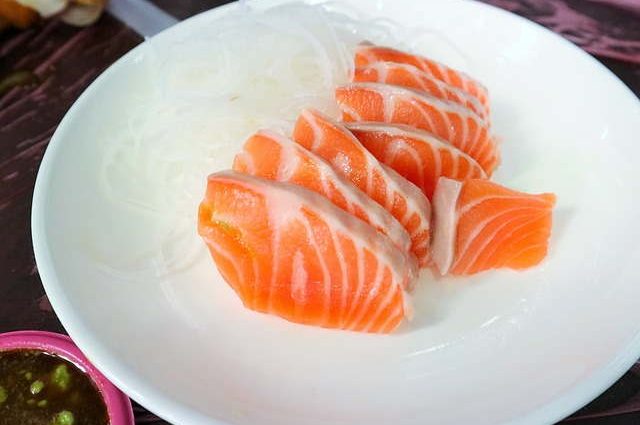Discover a comprehensive 7-day meal plan for gastritis relief. Follow these expert tips and delicious recipes to soothe your stomach and promote healing.
Gastritis can be a discomforting condition, but with the right dietary adjustments, you can alleviate symptoms and promote healing. This comprehensive 7-day meal plan is designed to provide relief and support digestive health.
Introduction
Living with gastritis can be challenging, but by adopting a specialized meal plan, you can take control of your symptoms and embark on a journey to wellness. This article outlines a week-long dietary regimen crafted to soothe your stomach and promote healing from gastritis.
Understanding Gastritis
Gastritis is characterized by inflammation of the stomach lining, which can lead to symptoms such as abdominal pain, bloating, nausea, and indigestion. Various factors, including stress, spicy foods, alcohol, and certain medications, can contribute to gastritis.
Identifying Triggers
To effectively manage gastritis, it’s essential to identify and avoid triggers that exacerbate symptoms. Common triggers include acidic foods, caffeine, alcohol, and processed foods.
The Importance of a Balanced Diet
A balanced diet is crucial for managing gastritis and promoting overall digestive health. Incorporating nutrient-rich foods can help soothe inflammation and support the healing process.
Key Nutrients for Gastritis Relief
- Fiber: Soluble fiber, found in foods like Organic Jumbo Oats, fruits, vegetables, and legumes, can help soothe the digestive tract and regulate bowel movements, reducing irritation and inflammation in the stomach lining.
- Omega-3 Fatty Acids: Found in fatty fish like salmon, walnuts, and flaxseeds, omega-3 fatty acids have anti-inflammatory properties that can help alleviate symptoms of gastritis.
- Antioxidants: Foods rich in antioxidants, such as berries, leafy greens, and colorful fruits and vegetables, help protect the stomach lining from damage caused by free radicals and reduce inflammation.
- Protein: Lean sources of protein like poultry, fish, tofu, and legumes can aid in the repair and regeneration of the stomach lining, promoting healing in cases of gastritis.
- Probiotics: Foods containing probiotics, such as yogurt, kefir, sauerkraut, and kimchi, help restore balance to the gut microbiota and may reduce inflammation and discomfort associated with gastritis.
- Vitamin A: Found in orange and yellow fruits and vegetables, as well as leafy greens, vitamin A supports the health of the mucous membranes lining the digestive tract and can aid in healing gastritis.
- Vitamin C: Citrus fruits, strawberries, bell peppers, and broccoli are rich in vitamin C, which plays a role in collagen formation and may help protect the stomach lining from damage.
- Zinc: Zinc is involved in the repair and maintenance of the gastrointestinal mucosa. Foods high in zinc include oysters, beef, poultry, beans, nuts, and whole grains.
- B Vitamins: Vitamins like B6, B12, and folate are important for overall digestive health and can be found in foods such as poultry, fish, eggs, dairy products, leafy greens, and fortified cereals.
- Ginger and Turmeric: These spices have anti-inflammatory properties and may help alleviate symptoms of gastritis when consumed regularly as part of the diet.
Incorporating a variety of these nutrient-rich foods into your diet can help support the management and relief of gastritis symptoms. However, it’s important to consult with a healthcare professional for personalized dietary advice based on your specific condition and needs.
7 Day Meal Plan For Gastritis
Day 1:
- Breakfast: Oatmeal with sliced bananas and a drizzle of honey
- Snack: Greek yogurt with sliced almonds
- Lunch: Grilled chicken breast with steamed vegetables
- Snack: Apple slices with almond butter
- Dinner: Baked salmon with quinoa and roasted asparagus
Day 2:
- Breakfast: Whole grain toast with avocado and poached eggs
- Snack: Cottage cheese with pineapple chunks
- Lunch: Turkey and vegetable wrap with whole grain tortilla
- Snack: Carrot sticks with hummus
- Dinner: Stir-fried tofu with brown rice and mixed vegetables
Day 3:
- Breakfast: Smoothie made with spinach, banana, almond milk, and a scoop of protein powder
- Snack: Handful of mixed nuts
- Lunch: Lentil soup with whole grain bread
- Snack: Greek yogurt with berries
- Dinner: Grilled shrimp with quinoa salad (mixed greens, tomatoes, cucumbers)
Day 4:
- Breakfast: Scrambled eggs with spinach and tomatoes
- Snack: Sliced pear with almond butter
- Lunch: Grilled vegetable salad with chickpeas and feta cheese
- Snack: Rice cakes with avocado spread
- Dinner: Baked chicken breast with sweet potato and steamed broccoli
Day 5:
- Breakfast: Whole grain pancakes with fresh berries and a drizzle of maple syrup
- Snack: Cottage cheese with sliced peaches
- Lunch: Quinoa stuffed bell peppers with a side of mixed greens
- Snack: Celery sticks with peanut butter
- Dinner: Turkey meatballs with marinara sauce over zucchini noodles
Day 6:
- Breakfast: Greek yogurt parfait with granola and sliced strawberries
- Snack: Handful of trail mix
- Lunch: Grilled salmon salad with mixed greens, cucumber, and avocado
- Snack: Apple slices with a sprinkle of cinnamon
- Dinner: Vegetable stir-fry with tofu and brown rice
Day 7:
- Breakfast: Whole grain toast with almond butter and sliced bananas
- Snack: Carrot and cucumber sticks with hummus
- Lunch: Quinoa and black bean salad with diced tomatoes and cilantro
- Snack: Greek yogurt with honey
- Dinner: Baked cod with roasted Brussels sprouts and a side of quinoa
Continue the meal plan with similar options for the remaining days of the week, ensuring a balance of nutrients and flavors to support gastritis relief.
Remember to drink plenty of water throughout the day and listen to your body’s signals. Adjust portion sizes and ingredients according to your personal preferences and any specific dietary restrictions or recommendations from your healthcare provider.
Conclusion
Managing gastritis requires a multifaceted approach, including dietary modifications, stress management, and lifestyle changes. By following a specialized meal plan and incorporating soothing, nutrient-rich foods, you can alleviate symptoms and support the healing process.
Read more:
Key Food Circular: Unlocking Savings and Convenience
Unveiling the Delights of Çeciir: A Cultural and Culinary Journey

